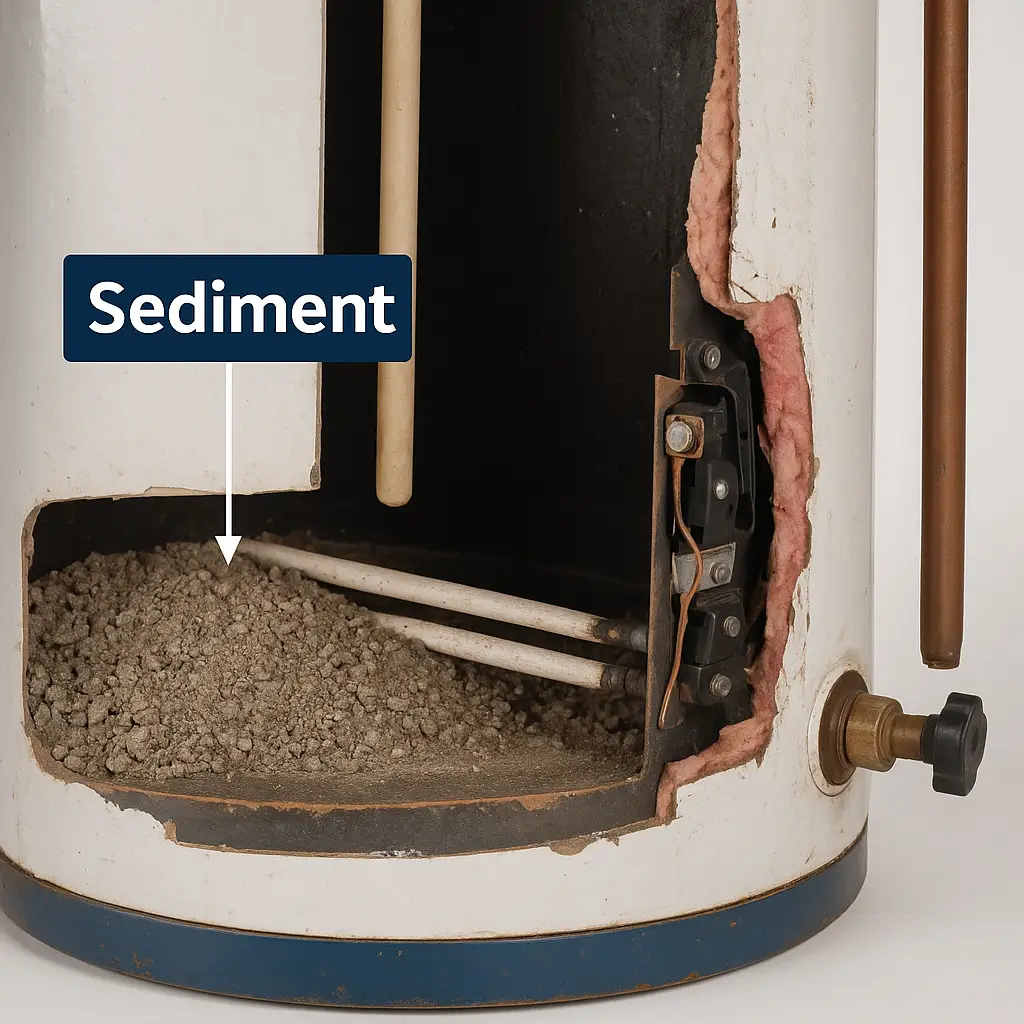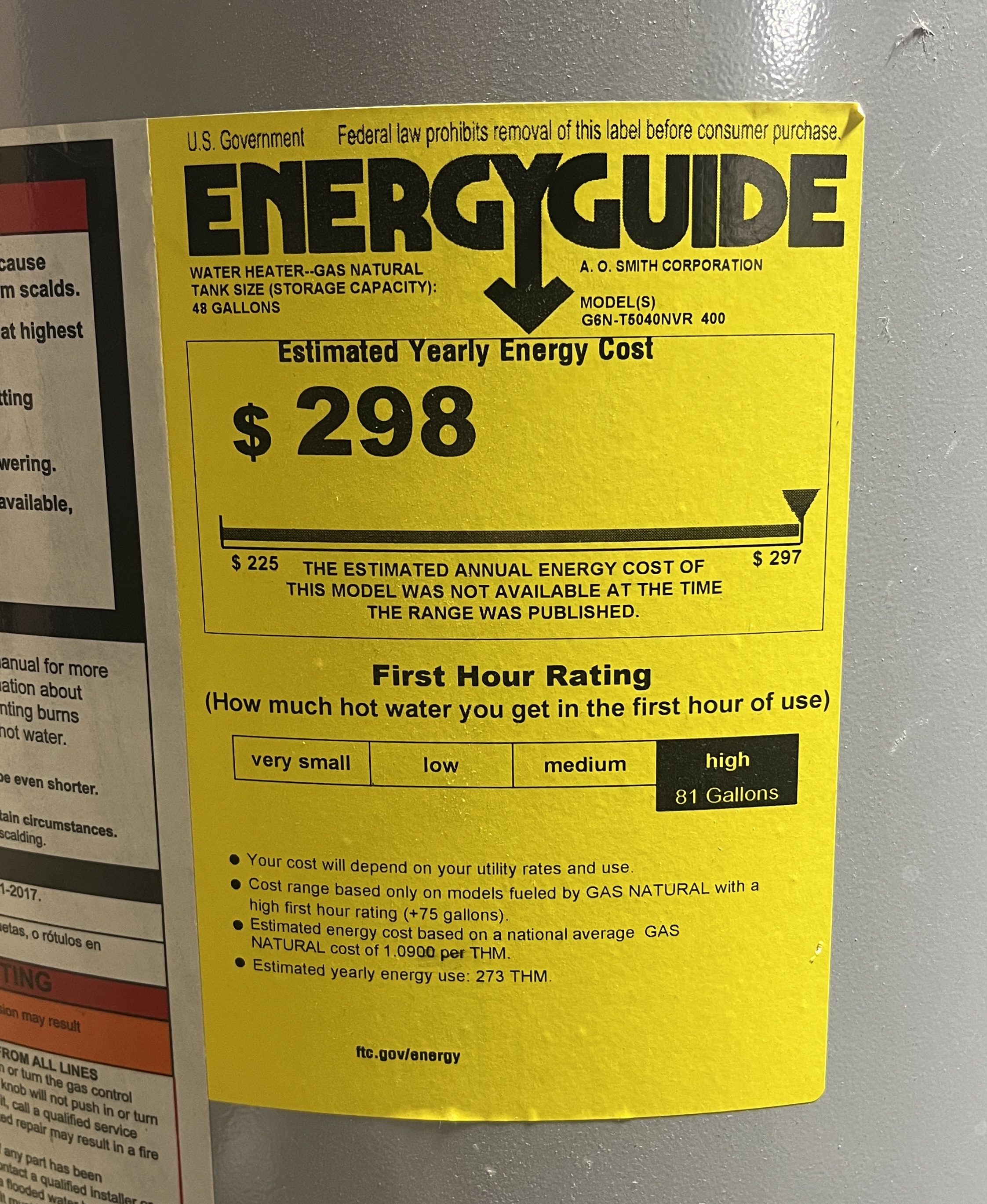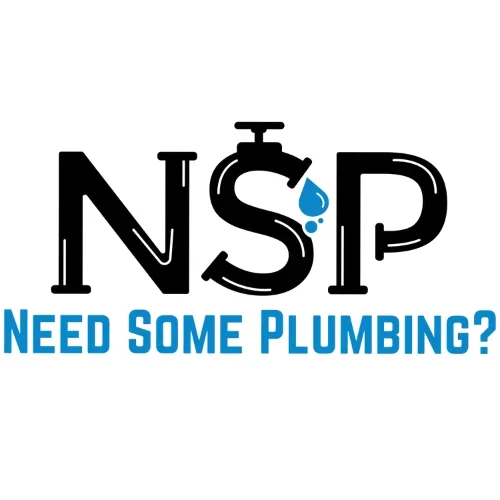Can a Bad Hot Water Heater Affect Your Electric Bill?

Can A Bad Water Affect Your Electric Bill?
Book Online Today Call NSP PlumbingHave you noticed a sudden spike in your electric bill? The culprit might be closer than you think. A bad hot water heater could be to blame. A malfunctioning hot water heater can significantly increase your energy consumption. This, in turn, can lead to a higher electric bill.
But how can you tell if your hot water heater is the problem? And what can you do about it? This article will guide you through the signs of a bad hot water heater. It will also provide actionable tips to reduce your electric bill. Let's dive in and find out how you can take control of your hot water heater's energy use.
Understanding Your Hot Water Heater's Role in Energy Consumption
Your hot water heater is one of the biggest energy users in your home. It's responsible for heating water on demand. This process requires a significant amount of electricity.
Heating water can account for up to 17% of your home's energy use. Therefore, even minor inefficiencies in your hot water heater can lead to noticeable increases in your energy bill.
When a hot water heater runs inefficiently, it uses more electricity than necessary. This inefficiency can be due to various factors, such as sediment buildup or faulty components. Understanding these factors is key to managing energy consumption.
Regular maintenance can help you keep your water heater running efficiently. Simple tasks, like flushing the tank, can improve its performance. This not only saves on your electric bill but also extends the life of your unit.
A well-maintained hot water heater keeps energy use in check. It ensures that your household runs smoothly without surprise costs. Recognizing its role in your home is the first step in managing your energy expenses.
common Signs of a Bad Hot Water Heater
Identifying a failing hot water heater early can prevent costly energy bills. Certain signs suggest your unit is underperforming. Recognizing these indicators can help you take timely action.
Common symptoms of a malfunctioning water heater include inconsistent water temperatures and strange noises. Leaks are another sign that trouble might be brewing. Sediment buildup is also a major culprit when it comes to inefficiency.
Here's a concise list of signs that your water heater might be bad:
- Inconsistent water temperatures
- Unusual noises, such as popping or rumbling
- Water leaks from the heater or pipes
- Longer wait times for hot water
- Discolored or rusty water
These issues can lead to your water heater working overtime. This increased workload results in higher energy use. Unaddressed problems can escalate into more severe damage or a complete system failure.
Acting on these warning signs promptly is crucial. It can help you avoid expensive repairs or replacement costs. More importantly, it ensures your water heater operates efficiently, keeping your electric bill in check.
Inconsistent Water Temperatures
If you experience fluctuating water temperatures, your water heater might be to blame. This issue often indicates a failing thermostat. It might also point to heating elements that aren't functioning properly.
Inconsistent temperatures disrupt daily routines. They also contribute to unnecessary energy consumption. The heater works harder to maintain the desired temperature, causing an uptick in your electric bill.
Addressing this problem quickly can restore consistency. It will save you both energy and frustration. Regular checks and maintenance can minimize the risk of this common issue.
Strange Noises and Leaks
Strange noises coming from your water heater should not be ignored. Popping or rumbling sounds often signal sediment buildup. This buildup causes the heating elements to function inefficiently.
Leaks, on the other hand, are a clear warning of potential malfunction. Leaky pipes or joints can waste hot water, pushing your energy use higher. A water heater leak can also lead to water damage over time.
Both problems require immediate attention. Addressing them can prevent escalating issues. Prompt action helps to maintain your heater's performance and efficiency.
Sediment Buildup and Efficiency Loss
Sediment buildup in a water heater is a common but serious issue. Minerals accumulate at the bottom of the tank over time. This buildup interferes with the heater's operation and reduces its efficiency.

A layer of sediment acts as a barrier. It prevents heat from reaching the water efficiently. As a result, the heater uses more energy to do its job, driving up your electric bill.
Regular flushing of the tank can alleviate sediment issues. It improves the heater's efficiency and extends its lifespan. Routine maintenance is essential for preventing these common problems.
The Impact of a Faulty Water Heater on Your Electric Bill
A faulty water heater has a significant impact on your electric bill. It can cause your energy usage to soar. This is often due to inefficiencies that demand more power to heat water.
Failing components, like heating elements or thermostats, force the heater to work harder. More energy is required, leading to increased consumption. This rise is reflected in higher utility bills month after month.
A poorly maintained unit can also lose heat more quickly. Poor insulation allows heat to escape from the tank. This loss prompts the heater to cycle on more frequently, consuming additional energy.
Leaks, another symptom of a malfunctioning heater, contribute to wasted energy. Water that's heated and lost through a leak doesn't benefit you. Instead, it leads to increased energy usage as the heater compensates for the loss.
By addressing these issues, you can reduce electricity consumption. This proactive approach not only lowers bills but also extends the life of your water heater.
Heating Element and Thermostat Failures
Faulty heating elements are a common cause of increased bills. When they fail, the heater struggles to maintain temperature. This results in prolonged heating times and higher energy usage.
Thermostat issues exacerbate the problem. A malfunctioning thermostat can lead to incorrect temperature settings. This forces the heater to cycle on and off more frequently.
Replacing these components promptly is essential. Quick action prevents unnecessary energy waste. It also restores the heater's efficiency, helping you save money.
The Cost of Poor Insulation and Heat Loss
Insulation plays a vital role in a water heater's efficiency. Poor insulation results in significant heat loss. This loss increases the energy required to maintain water temperature.
Heat loss forces the water heater to run more often. Each cycle consumes additional energy, leading to a higher electric bill. The absence of adequate insulation can be a silent but costly problem.
Improving insulation is a cost-effective solution. It ensures heat is retained, reducing the heater's energy demand. This improvement can notably decrease your monthly utility expenses.
Maintenance Tips to Reduce Your Electric Bill
Consistent maintenance of your hot water heater is crucial for energy efficiency. Regular upkeep prevents issues that lead to spikes in your electric bill. Simple maintenance routines can bring about significant savings.
Begin by creating a checklist of routine maintenance tasks. These tasks include inspecting components, checking for leaks, and ensuring insulation is intact. Timely attention to these areas prevents costly electricity use.
Performing regular maintenance not only saves you money but also extends the lifespan of your heater. A well-maintained unit operates more efficiently and requires fewer repairs. This results in less disruption and lower overall costs.
Routine checks are essential to identify potential issues early. Early detection allows for minor repairs, avoiding major problems that impact your electric bill. Staying proactive is key to maintaining efficient water heating.
Here's a list of basic maintenance tasks to help you save energy and money:
- Flush the tank every six months
- Inspect the anode rod annually
- Check for signs of corrosion or leaks
- Test the thermostat and heating elements
- Improve insulation on the tank and pipes
Regular Flushing and Inspecting Anode Rods
Flushing your water heater is a simple but vital task. Sediment buildup at the bottom of the tank reduces efficiency. Regular flushing removes sediment, improving heat transfer and saving energy.
The anode rod also requires attention. This rod prevents rust inside the tank. Inspecting it yearly ensures it is still effective. Replacing it when needed prevents tank corrosion and extends heater life.
Failing to maintain these parts leads to inefficiencies. Sediment buildup and rust can severely impact performance. Regular maintenance addresses these issues before they lead to costly repairs.
Insulating Your Water Heater and Pipes
Insulation is an often-overlooked factor in energy efficiency. Adding an insulating blanket to your water heater is effective. It reduces heat loss, keeping the water hot with less energy.
Insulating the pipes that run to and from your heater further reduces heat loss. This means your heater doesn't have to work as hard. It uses less power to maintain the desired water temperature.
Upgrading insulation is simple and cost-effective. The energy saved quickly covers the upfront cost of materials. By focusing on insulation, you will notice immediate savings on your electric bill.
Upgrading to Energy-Efficient Water Heaters
Considering an upgrade to a modern water heater can lead to substantial savings. Newer models are designed with energy efficiency in mind, reducing the electricity they consume.
High energy bills often prompt the need for more efficient solutions. Upgrading to an energy-efficient water heater can address this concern directly. Choosing a model that fits your household's needs ensures optimal performance and cost-effectiveness.
Several types of energy-efficient water heaters are available. Tankless models heat water on demand, eliminating standby heat loss. Meanwhile, hybrid models combine traditional and heat pump technologies for better efficiency.
When choosing a new water heater, examine different features and technologies. Look for units with higher Energy Factor (EF) ratings to guarantee reduced energy consumption. High EF ratings indicate superior performance and less energy waste.
The switch to an energy-efficient water heater is more than just a purchase. It's an investment in your home's efficiency and your financial well-being. The savings on your electric bill can be significant over time.
Benefits of Tankless and Hybrid water heaters
Tankless water heaters offer numerous advantages. They heat water only when needed, which eliminates energy waste from maintaining a full tank of hot water. This instant heating process can lower utility bills significantly.
Hybrid models are another excellent choice. They use a heat pump system that extracts heat from surrounding air, making them highly efficient. This system can reduce the amount of electricity needed to heat your water.
Both tankless and hybrid models provide long-term savings. They may have higher upfront costs, but the reduction in energy consumption and corresponding savings on your electric bill justify the investment.
Understanding Energy Factor (EF) Ratings on your water heater
Energy Factor (EF) ratings are essential when evaluating water heaters. They reflect a unit's efficiency by measuring the amount of hot water produced per unit of fuel consumed. Higher EF ratings equate to better efficiency.
When shopping for a new water heater, prioritize models with higher EF ratings. These ratings can provide a clear indicator of operating costs and potential savings on electric bills. Manufacturers usually display EF ratings on the product labels.
EF ratings can help you make informed purchasing decisions. By considering these ratings, you can choose a water heater that meets your energy-saving goals. This leads to reduced monthly expenses and a lower carbon footprint.
Smart Adjustments to Lower Your Electric Bill
Reducing your electric bill can be as simple as making a few smart changes. Implementing these adjustments not only conserves energy but can also cut down costs significantly.
To begin, consider optimizing the settings on your water heater. Setting a lower temperature can reduce electricity consumption without compromising comfort.
Utilizing timers can further enhance efficiency. By scheduling your water heater to run during non-peak hours, you can take advantage of lower electricity rates. This approach helps in balancing energy demand and costs effectively.
Another effective method is to install low-flow fixtures. Reducing water flow lessens the demand on your water heater, saving both water and electricity.
Here is a brief list of smart adjustments:
- Lower water heater temperature settings
- Use timers for optimal energy use
- Install low-flow bathroom and kitchen fixtures
- Integrate energy-efficient appliances
- Together, these changes contribute to significant savings by reducing unnecessary electricity use.
Lowering Temperature Settings and Using Timers
Lowering your water heater's temperature setting is a straightforward way to save energy. You can safely set the thermostat to 120 degrees Fahrenheit. This temperature is both efficient and adequate for most household needs.
Timers offer another layer of energy efficiency. By scheduling the water heater to operate during off-peak hours, you can avoid high electricity rates. Smart thermostats and timers help automate this process.
By combining these techniques, you'll see a notable impact on your utility bill. Adjusting the temperature and using timers are cost-effective methods that require minimal effort.
Installing Low-Flow Fixtures and Energy-Efficient Appliances
Low-flow fixtures are game-changers when it comes to water conservation. They use less water without sacrificing pressure, reducing the load on your water heater. With these fixtures, you'll save both water and energy consistently.
In addition to fixtures, consider upgrading to energy-efficient appliances. Modern dishwashers and washing machines use significantly less hot water. Look for ENERGY STAR-rated appliances to ensure maximum efficiency.
Switching to these fixtures and appliances brings long-term benefits. Not only will your electric bill decrease, but you'll also contribute to a more sustainable environment. These small changes make a significant difference over time.
Save on Your Electric Bill with Professional Water Heater Service
Don’t let a faulty water heater drive up your energy costs. NSP Plumbing offers expert water heater repair, maintenance, and installation services. We’ll ensure your unit is running efficiently, so you can enjoy lower utility bills and peace of mind.
Contact NSP Plumbing Today for reliable, 24-hour plumbing service in your area.




